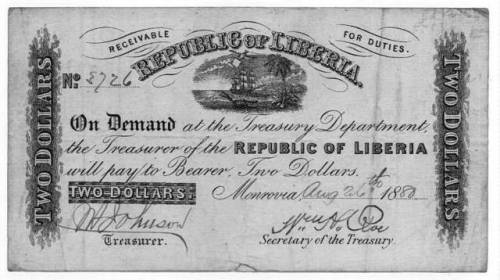Liberia, the American Origins of an African NationUnfortunately, recent news of ebola and possible p
Liberia, the American Origins of an African NationUnfortunately, recent news of ebola and possible pandemics do not do paint Liberia in a good light. When most Americans and perhaps Europeans think of Liberia, they tend to associate it with the deadly hemorrhagic disease, much in the same way Guyana is only known for the Jonestown Massacre. This is unfortunate because Liberia has a unique history that most people are not aware of, and most unexpectedly it is an African nation that originates from America.The origins of Liberia begin during the dark days of slavery in the United States. One of the little known facts of United States history is that abolitionists were united in the idea of blacks having equality and total freedom. There was a large faction within the abolitionist movement that believed that while slavery should be abolished, blacks were not equal with whites, blacks should never be granted full political and economic freedom, and that American society would never be peaceful unless both races lived a separated existence with white people in charge of things. Today such a philosophy would be shocking and racist to most, akin to Jim Crow segregation, however in the 19th century this was considered a very popular and enlightened view. Thus, to these abolitionists the best solution to the race issue was to repatriate former slaves back to their homelands in Africa. This was also a very popular idea, ardently supported by men such as James Monroe, Henry Clay, and Abraham Lincoln. Many other abolitionists supported the idea of repatriation because they believed that blacks would never be treated fairly in the US, and thus would have a better chance of living a full life in Africa.In the 1820’s, an abolitionist group called the American Colonization Society began buying up large plots of land along the West African coast. Their intent was to purchase the freedom of slaves from the south, then settle them in their newly created African territory which they named “Liberia”. Passage to Liberia was paid by the ACS, and they were stocked with a large supply of necessities such as food and clothing. Free black people were also allowed to become colonists as well. The first colony was settled in 1822. From the 1820’s up to the American Civil War, thousands of freed slaves immigrated to Liberia. Other similar organizations sent thousands of more colonists to locations that would become a part of Liberia.At first Liberia was considered an American colony and United States territory, however in 1847 Liberia declared itself independent. Liberia established its own constitution based on the US Constitution and set up a system of government based upon the US Government. Liberia’s capital was named “Monrovia” after US President James Monroe, one of the most ardent advocates of repatriation. Even the Liberian flag (pictured above), was based upon the American Stars and Stripes, with 11 red and white strips symbolizing the signatories of the Liberian Declaration of Independence, the white star symbolizing the freedom given to ex-slaves, and the blue banner symbolizing the African mainland.The settling of what were essentially foreign peoples in Liberia came with many unintended consequences. As colonists settled the region and expanded, they often pushed out native African peoples. Armed conflict between Americo-Liberians and native Africans was common, and over time the Americo-Liberians came to dominate. By the 20th century, the Liberian political system, economy, and society was dominated by the Americo-Liberians despite the fact that they made up a small minority of the Liberian population. This led to two extremely bloody and destructive civil wars occurring in the 1990’s and early 2000’s. While today the country is at peace, unfortunately things are not all well in Liberia. Along with the recent ebola outbreaks, Liberia has long suffered widespread poverty, crime, and government corruption. Things are not looking to improve anytime soon. -- source link
#history#liberia#african history#liberian history#slavery#abolitionists



